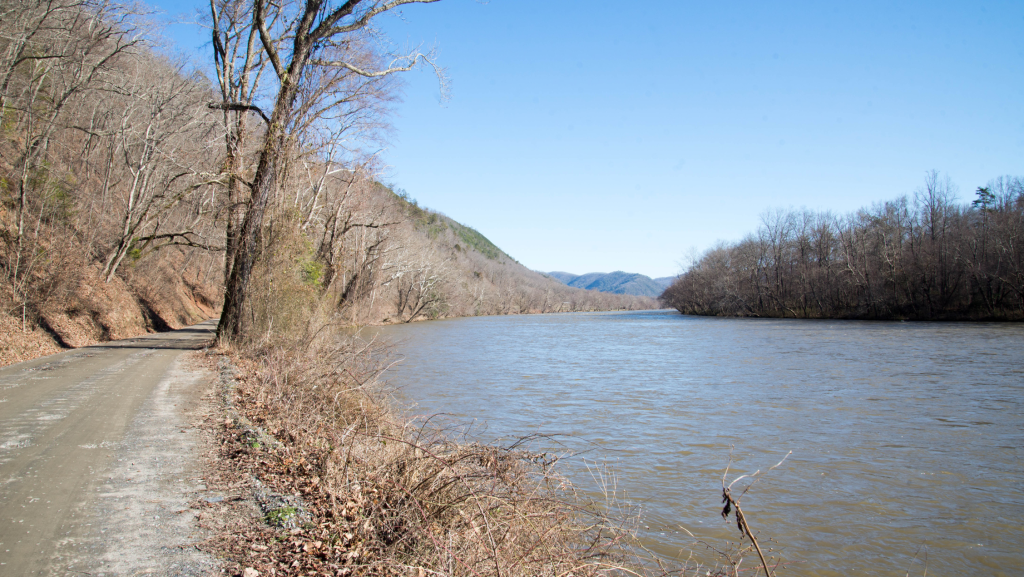
Senate Bill 220 was filed in the legislature on February 27, 2025 by Senators Rabon, McInnis, and Britt. The legislation states it was drafted on recommendation of NCWRC, though this has not been confirmed. The bill states: “Any person who willfully launches any motorized or unmotorized watercraft from the right-of-way of a public highway or street into a body of water adjacent to the right-of-way, except in public areas designated for boating access, is guilty of a Class 3 misdemeanor.” A very large percentage of river access in the state would be made illegal if this bill passes.
Paddling on North Carolina’s rivers and streams is a well established right that contributes to the state’s recreation economy, manufacturing sector, and the quality of life for many residents. Roads and rivers are two public transportation systems that intersect at bridges. In order for the public to be able to enjoy our paddling rights, we have to be able to use bridges to get on and off of the water. SB 220 is a dubious effort to strip away the public right to float rivers by eliminating access rights.
Here are some examples in North Carolina where this law would affect paddlers:
- Highway 64 Near the French Broad River – Paddlers who have traditionally pulled off the road to launch kayaks or canoes directly from the highway shoulder into the river would no longer be allowed to do so unless there is a designated public boating access point.
- Neuse River Crossings – Many paddlers currently launch from roadside pull-offs along the Neuse River. Under this law, those informal launch sites would become illegal unless they are part of a designated public access area.
- Haw River at Roadside Bridges – Some paddlers currently put in at small roadside areas where bridges cross the Haw River. Unless those locations are designated as public boating access areas, launching there would be a misdemeanor.
- Cape Fear River Near Backroads – In rural areas, some paddlers launch from dirt road shoulders or bridges crossing the Cape Fear River. Once the law takes effect, those paddlers will need to use official access points to avoid legal consequences.
- Lake Norman Unofficial Shoreline Pull-Offs – Some paddlers currently launch kayaks from roadside spots where state roads run adjacent to the lake. After October 1, 2025, they will need to use designated access areas.
Take Action: If you live in North Carolina, please reach out to your legislators and let them know how you feel about this bill. Find your legislator here.
We will continue to monitor the status of SB 220 alongside our partners at American Whitewater.
